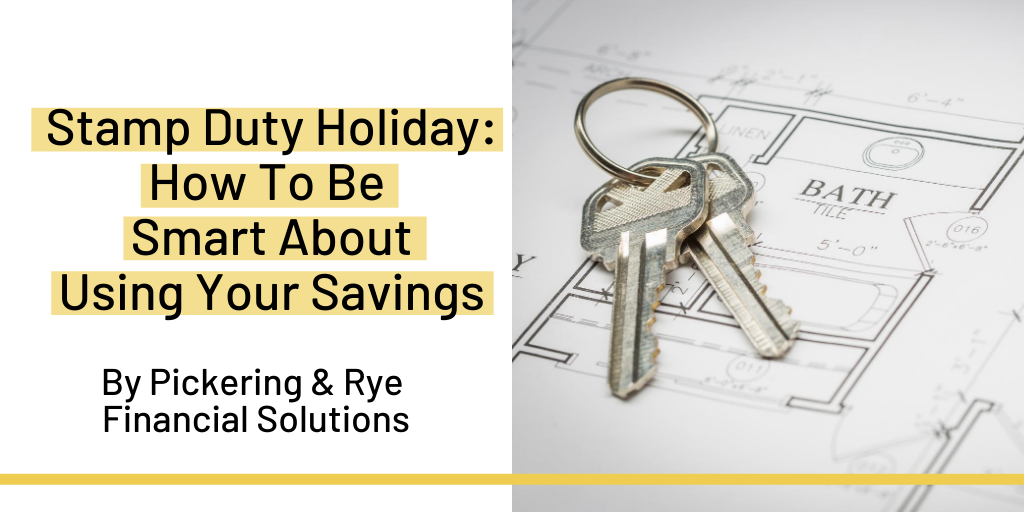Content provided by Pickering and Rye
Contact Pickering and Rye here
Putting the spare cash towards your mortgage can pay off in the long run. Prospective homebuyers received a welcome surprise in Chancellor Rishi Sunak’s Summer Statement: a stamp duty holiday that will run until 31 March 2021 in England and Northern Ireland.
Part of a series of measures aimed at reviving the economy amid the COVID-19 pandemic, the increase in the threshold at which stamp duty kicks in means homebuyers could save as much as £15,000 on the purchase of their property.
So how to use these newfound savings? Rather than spending them on some ‘nice-to-have’ items for your new home, consider how the money could help over the long-term.
How much stamp duty could I save?
Prior to the announcement, stamp duty amounted to 2% on property sold for £125,000 or more. This then increased to 5% for properties above £250,000, with the highest rate at 12%. First-time buyers did not pay any stamp duty on purchases up to £300,000. Under the new measures, the stamp duty threshold has been increased to £500,000. Homebuyers will pay 5% stamp duty on the portion of a property’s value from £500,001 to £925,000, 10% on the portion from £925,001 to £1.5 million, and 12% above £1.5 million.1
The chancellor said in the Summer Statement: “The average stamp duty bill will fall by £4,500. And nearly nine out of 10 people buying a main home this year will pay no stamp duty at all.”
Bear in mind that while investors in buy-to-let and those buying a second home are entitled to the tax cut, they will still have to pay the additional 3% stamp duty surcharge that applies to purchases of additional homes.
In Scotland and Wales, homebuyers will also benefit from a stamp duty holiday, seeing this tax waived on purchases up to £250,000 until 31 March 2021. Previously, only purchases under £145,000 in Scotland or £180,000 in Wales were exempt.2 3
Stamp duty is often the second-largest cost you encounter after paying your deposit, and the temporary change could save homebuyers a substantial sum.
Maximising your stamp duty savings
You may be tempted to use these savings on renovations or new furnishings for your new home.
However, if you’re smart about using any spare cash, you can save far more over the long-term, and may even be able to pay off your mortgage earlier as part of your retirement game plan.
Paul Johnson, Client Banking and Mortgage Manager at St. James’s Place, stresses that you can make a significant difference to your mortgage repayments by using your savings wisely.
“It may be tempting to buy a sofa or new carpets. And while this may be nice initially, if you can reduce your mortgage by £15,000, you could save far more in interest payments over the longer-term.
“You may also, for example, reduce your loan to value from 85% to 80%, and qualify for lower rates when you apply for your mortgage. The lower the amount of outstanding capital, the lower the interest rate you may pay on your mortgage and the quicker you wipe out your debt.”
This money can also be used to ‘overpay’ your mortgage – the majority of standard mortgages enable you to overpay by up to 10% a year. “Ultimately, as well as the interest rate, flexibility is important,” says Johnson. “It’s important to talk to your adviser about the right mortgage for you, and how to maximise any overpayments to look beyond short-term gains.”
Your St. James’s Place Partner can help you to understand your options and advise on the wisest strategy for making overpayments and minimising the interest you pay. They will also ensure you secure the right mortgage for your circumstances.
Your home may be repossessed if you do not keep up repayments on your mortgage.
The levels and bases of taxation, and reliefs from taxation, can change at any time and are generally dependent on individual circumstances.
1 Stamp Duty Land Tax: temporary reduced rates, HM Revenue & Customs, July 2020
2 Help for homebuyers and employment support, Scottish Government, July 2020
3 Land Transaction Tax rates and bands, Welsh Government, July 2020

